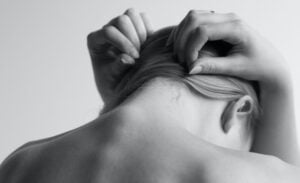Drug Alcohol and Rehab in Kuwait
Learn about drug and alcohol rehab in Kuwait. The rehab clinic offers a robust admissions process, supervised alcohol or drug detox, and evidence-based treatments.
In 2018, 4,359 people died of drug poisoning in the UK.
That same year saw an increase of 17% in drug misuse, which took the lives of 2,917 people. It’s also been predicted that the UK has around 586,780 dependent drinkers, with only 18% receiving treatment.
Some of these statistics may shock you. But we’re not telling you all of this to scare you – we hope to motivate you to take positive action.
Seeking out professional help and support is always the best way to recover.
Unfortunately, drug and alcohol rehab has been historically difficult to access in Kuwait.
But things are getting a lot better, and good treatment plans exist. All you need to do is get in touch with Rehab Recovery.
Start your recovery journey at drug and alcohol rehab centres in Kuwait by calling our team today on +44 330 333 6197
Physical vs psychological addictions in Kuwait

Addiction is not considered a ‘choice’ or ‘moral failing’ on behalf of the addiction sufferer – so the focus of rehab is always on returning agency to the patient.
To truly heal and move forward, it’s crucial to understand more about what addiction is. That includes the differences between physical and psychological addictions.
Physical dependence occurs after a long period of drug/and or alcohol abuse. It means that your body has become reliant on the substances you’re using or on alcohol in some cases.
This then means withdrawal symptoms occur if you suddenly attempt to stop using.
Addiction is generally defined by an inability to stop: this can be in your body as well as in your head.
A word of warning if you’re in the early stages of addiction – and increased tolerance might not seem like a big deal, but it can be a sign that dependence is developing.
You can overcome withdrawal symptoms with drug and alcohol detox, which we’ll talk about in a bit more detail later.
Many detoxes are supported medically with the use of prescription drugs, which help to limit the intensity of withdrawal symptoms. Librium is perhaps the most popular prescription drug for use during alcohol detox.
Meanwhile, psychological addiction is defined by mental compulsion. Some research even suggests that addiction changes the way your brain works.
This is generally dealt with during treatment through a combination of therapy, addiction counselling and support groups like alcoholics anonymous and narcotics anonymous.
You can read more about the disease of addiction here.
To learn more about the nature of addiction and how a rehab clinic in Kuwait can help you 0vercome addiction, call us today on +44 330 333 6197
Addiction treatment services in Kuwait

Rehab can also take many different forms depending on what specifically you’re addicted to.
Alcohol addiction treatment, for example, is usually different from essentially any kind of drug addiction treatment.
It comes along with different symptoms too. Examples of alcohol withdrawal symptoms include cold sweats, a high pulse, nausea and vomiting, alongside alcohol seizures and delirium tremens.
People with more extreme dependency might even experience hallucinations and seizures. These withdrawal symptoms can also occur with various substances, but with variations and to different levels.
An issue that affects alcohol addiction more than any other kind of addiction is moderation vs abstinence. If you have a less severe issue that’s more abuse than addiction, moderate use could theoretically still be an option.
However, this option is often argued against whilst at rehab, especially if you have a full addiction.
Overall, if you’re at a stage of seeking out rehab, quitting alcohol entirely is your best option.
Experts have agreed that abstinence is far more effective than harm reduction or moderation management – as a result, that’s what rehabs focus on.
Many addictions are treated with different medications. These can also be vastly different depending on what you’re addicted to.
Drugs like cocaine and heroin again come with different symptoms and different treatments. With the former in particular, the extreme mood elevation it causes generally leads to a crash after use.
During this “crash” period, users will then suffer from (alongside a strong urge to do it again) drug withdrawal symptoms like anxiety, irritability, sleeplessness and agitation.
Physical symptoms don’t generally occur. Heroin addiction, on the other hand, generally follows the same physical withdrawal symptoms as alcohol addiction.
A majority of residential rehab and outpatient treatment centres cater for multiple kinds of addictions, so they should be able to cater to your needs, no matter what addiction you’re suffering from.
Learn more about addiction treatment services in Kuwait will help you overcome addiction, call our team today on +44 330 333 6197
The average time spent in rehab in Kuwait

Professionally supported drug and alcohol rehab is one of the best ways to recover from addiction.
Many going into either a residential private rehab or undergoing home treatment might wonder how long they’ll spend on it.
Speaking generally, it’s impossible to say. It can change a lot, depending on various factors, including:
- What you’re addicted to, as different substances can affect people in vastly different ways, as seen in our discussion about alcohol addiction, cocaine, heroin and more.
- How long you’ve been addicted , as addiction generally worsens over time
- Your overall personality, as you may react differently to treatment than others would
- How your treatment goes once you get started with it – for example, if it doesn’t work at first, you might need to spend longer on it overall
Depending on all of these factors, inpatient or outpatient rehab could last from a month to a year. It all depends on what you need and how things pan out.
To learn how long you will likely need to spend at an alcohol and drug rehab in Kuwait, call our team today on +44 330 333 6197
Dual diagnosis at a rehab centre in Kuwait

We’ve spent all of this time dividing everything into categories: but what do you do if you’re dealing with multiple diagnoses?
It’s important to ensure that everything you’re suffering is considered. So let any organisations you contact know about everything. That includes mental health issues, which can be critical to your treatment.
Handling multiple diagnoses at once might make the whole situation seem more complicated – but with the proper treatment, you can overcome all of your issues.
To discover how a rehab in Kuwait will work to support your mental health, call our team today on +44 330 333 6197
Cocaine rehab in Kuwait

If you’re struggling from cocaine addiction in Kuwait then you will need to attend drug rehab.
If you are addicted to cocaine, then you will attend therapy during your time in rehab.
However, as neither cocaine nor crack cocaine are physically addictive, you will not need to undergo a physical cocaine detox.
Heroin rehab in Kuwait

A heroin addiction will control your life.
Heroin is one of the most addictive substances and controls both your mind and body.
As this is the case, individuals addicted to heroin in Kuwait will need to undergo therapy and a physical heroin detox in order to overcome their addiction.
Prescription drugs will likely be used during this detox in order to limit the potential of heroin withdrawal.
Cannabis rehab in Kuwait

Cannabis is one of the most highly abused drugs throughout Kuwait.
Although cannabis is highly addictive mentally and can be extremely hard to quit, cannabis is not physically addictive.
This means that upon admission to rehab in Kuwait, you will not need to undergo a cannabis detox.
Instead, cannabis addiction is mostly tackled through various therapies designed to break this psychological addiction and any addictive habits.
The process of drug and alcohol rehab in Kuwait

Now let’s talk a bit more about the kind of help you can get and where you can get it from.
It’s actually very simple: all you need to do is get in touch with Rehab Recovery, and we’ll be able to offer you instant advice and support.
We also aim to create a diverse and inclusive environment where all who are struggling feel welcome.
If you’d like us to, we can just give you advice – if you’re worried about someone else, we can also help you with an intervention.
Rehab itself also generally occurs in three stages: detoxification, rehabilitation and aftercare.
Detox, in particular, links back to the withdrawal symptoms we mentioned earlier. We’ll try to avoid them during the first part of treatment by slowly reducing your intake.
Physically this is one of the most challenging stages of the process – but once you get through it, hopefully, you will break your dependency, and you’ll be able to move on to the next step: rehabilitation.
At this point, you’ll encounter various kinds of therapy and addiction counselling, alongside more minor physical treatments like reflexology, yoga and acupuncture.
Some of the most popular mental health treatments used at this stage are:
- Cognitive Behavioural Therapy (CBT) – this treatment aims to work on the toxic thinking and behaviour patterns known as cognitive distortions. You’ll talk through these things with a therapist and will then be given work to do outside of sessions.
- Dialectical Behavioural Therapy (DBT) – is based on CBT but is designed for people who feel very intense emotions. The sessions aim to help you process and accept these emotions.
- Motivational Interviewing – centres around a series of non-judgemental questions designed to encourage you to change. This often comes alongside Motivational Enhancement Therapy.
- Contingency Management – here you’ll be rewarded for positive behavioural change. Desired behaviours are reinforced through incentives, which can take various forms.
- Brief Interventions – these sessions are designed to help address specific issues during the recovery process that may be preventing progress. Short and easy to fit into any schedule, they allow the patient to stay on track with their recovery.
- Holistic Therapy – this is an umbrella term for many different forms of treatment designed to support general wellness, instead of tackling specific addiction-related symptoms. These include art therapy, music therapy, mindfulness, meditation, yoga, nutritional counselling and much more.
Most of these therapies are available as either group therapy or individual therapy depending on the needs of the patient.
The final stage of treatment, aftercare, is a transitional step. You’ll continue to receive localised treatments and access support and guidance from the organisations you’ve worked with so far.
The main goal at this point is to avoid relapse, which we’re going to talk about in a bit more detail later.
To experience any of these superb treatments at a drug and alcohol rehab centre in Kuwait, call our team today on +44 330 333 6197
The 12-step approach to rehabilitation in Kuwait

When researching drug and alcohol rehab in Kuwait or elsewhere, you’ll likely have heard of the 12-step approach. But what exactly does it entail?
Essentially, these are 12 stages at the centre of Alcoholics Anonymous, although they’re obviously used for other kinds of addictions too.
The steps have changed and evolved over time and may also change slightly depending on where you go, but their core remains the same:
- Admitting to yourself that you have a problem and are currently out of control
- Acceptance of a higher power
- Deciding to turn your life around/over to that higher power
- Identifying your problems whilst looking at how your current behaviour and lifestyle affect not only yourself but those around you
- Admitting to yourself, to others, and to that higher power, if you believe in it, your wrongs.
- Accepting these faults and attempting to move forward while letting them go
- Asking a higher power to help you with recovery goals you can’t achieve alone.
- Make a list of people you’ve harmed before you started rehab
- Making amends to the people on said list
- Continue to admit where you were wrong, own up to your mistakes and heal
- Discover the plan that the higher power has for your life
- Carry the messages and lessons you’ve learned to others and continue putting them into practice in your own life
To learn more about how the 12-step process can help you beat addiction in Kuwait, call us today on +44 330 333 6197
Relapse prevention planning at rehab in Kuwait

Addiction is a constant battle; unfortunately, relapse is always possible. But a good relapse prevention plan should help.
Effective relapse prevention plans generally have three main components: Signs that could lead to relapse, ways to avoid it and what you should do if it does occur (in a step-by-step plan).
When writing out a plan, you should consider:
- Potential triggers
- Ways to manage cravings
- Effective relapse prevention tools
- Lifestyle changes
- Support groups and programmes that have been helpful
Carefully consider every part of your plan, looking at the various models available. And don’t forget, if you’re ever struggling, you can always get back in touch with Rehab Recovery.
It doesn’t matter how often you’ve been through this process. We’ll always be there to help and support you.
Make sure that your time at a drug and alcohol rehab in Kuwait is matched by a superb relapse prevention plan by calling us today on +44 330 333 6197
Getting Help Today

To learn more about anything read today, or to ask any questions relating to addiction, please should feel free to contact Rehab Recovery’s 24/7 addiction support hotline on +44 330 333 6197
With the right help behind you, any addiction can be successfully overcome.
We also offer connections to rehab clinics throughout Kuwait and the rest of the world.


